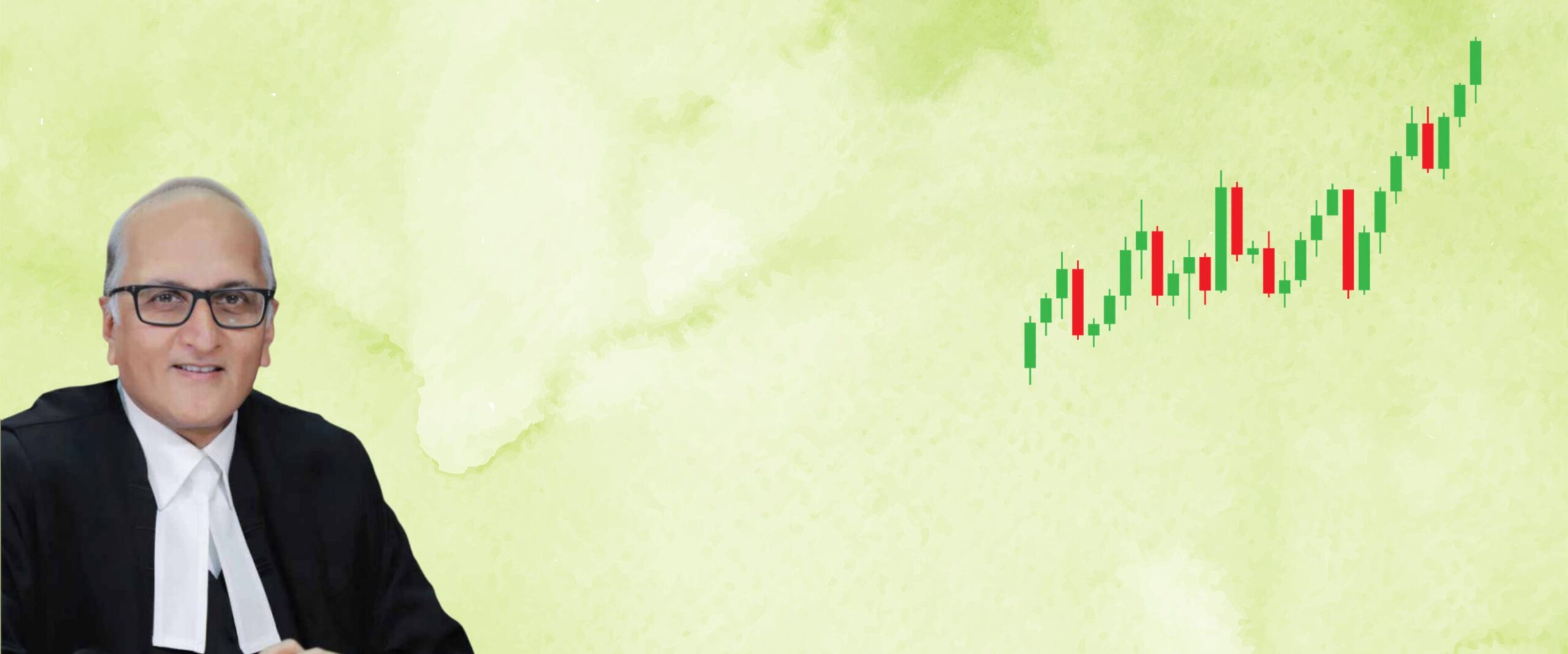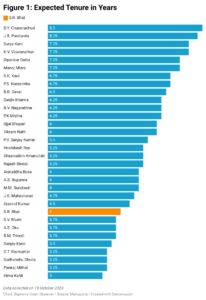Analysis
Justice S. Ravindra Bhat: Tenure in Numbers
Justice Bhat retires after a four-year tenure with 142 judgements to his name

Justice S. Ravindra Bhat, the eighth senior most judge of the Supreme Court, retired on 20 October 2023 after serving a tenure of four years. During this time, he authored 142 judgements and was a part of 484 benches.
In the ceremonial bench organised to bid farewell to Justice Bhat, Justice S.K. Kaul stated, “Contribution is not remembered as the number of years you’ve spent at a place, it is remembered as what you do at a particular place and I think four years has seen a lot of jurisprudential developments which have taken place and that’s his great contribution.”
His retirement reduces the strength of the Supreme Court to 31 judges out of the sanctioned strength of 34 judges.
Expected Tenures

Figure 1 depicts the expected tenure of all sitting judges of the Supreme Court at the time of Justice Bhat’s retirement. The y-axis plots the sitting judges and the x-axis represents their total tenure.
The average tenure of a sitting judge of the Supreme Court is 5.4 years. Justice Bhat’s four year long tenure falls short of this average. Notably, Justice Bhat appears to be one of 11 judges (out of 31 judges) who have an expected tenure of less than five years. 20 judges have five or more years in service as a Supreme Court judge, and 15 judges have higher than average tenures.
Justice Bhat was appointed in September 2019, along with Justice Hrishikesh Roy. Justice Roy’s tenure may be closer to the average, at 5.25 years.
How many judgements did Justice Bhat author?
Figure 2 depicts the total number of judgements authored by sitting judges of the Supreme Court. The bar in dark blue plots the total number of judgements authored by each judge. The bar in yellow represents the average number of judgements written each year.
Justice Bhat in four years has authored a total of 142 judgements, an average of 35.5 judgments per year. Chief Justice D.Y. Chandrachud leads the count with 569 judgements in his 7 year tenure so far, at an average of 77 judgements each year.
This is higher in comparison with his brother judges, who have served the same tenure as him, namely, Justices B.R. Gavai, Surya Kant, A.S. Bopanna, Aniruddha Bose, and Hrishikesh Roy. Justice Bhat ranks second in this list with 142 judgements, 16 less thanJustice B.R. Gavai, who has authored 158 judgements. Justice A.S. Bopanna follows, with 89 judgements. Justice Roy—appointed on the same day as Justice Bhat—authored 62 judgements.
Lastly, Justices Aniruddha Bose and Surya Kant authored 59 and 58 judgements respectively.
Rate of judgement authorship
Figure 3 shows the number of judgements authored by Justice Bhat each year (marked in green). The figure also shows the number of benches he has been a part of (marked in blue). The orange bar shows Justice Bhat’s judgment authorship rate—the number of judgements he wrote out of the benches he was a part of.
Justice Bhat authored judgements in 29% of the cases that he was on. In the first three years of his tenure, though the number of cases that he heard increased, the number of judgements he wrote remained between 20 to 32. In 2023, with only 10 months, Justice Bhat wrote 46 judgements.
In 2019, when his tenure was just three-months, he authored seven judgements. He was a part of 31 benches during this time, and had an authorship rate of 22.5%
In 2020, he authored 20 judgements and was a part of 80 benches, his authorship rate increased to 25%.
In 2021, he authored 37 judgements, and was part of 122 benches. He wrote judgements in 30.3% of those cases.
2022 saw a small dip in authorship to 32 judgements. Interestingly, it also saw his highest bench activity. He was a part of 158 benches. His authorship rate dropped to 20.2%
His final year as a sitting judge, saw the highest number of judgements during his tenure. He wrote judgements in 49.4% of the 93 benches that he was a part of.
Subject-matter of Judgements
Figure 4 shows that a majority of Justice Bhat’s judgements are in criminal matters (25 judgements). This is closely followed by Civil (20), Service (19), Property (13), Constitution (11), Direct Taxation (9), Consumer (7), Arbitration (7), Commercial (6) and Insolvency (5) matters.
